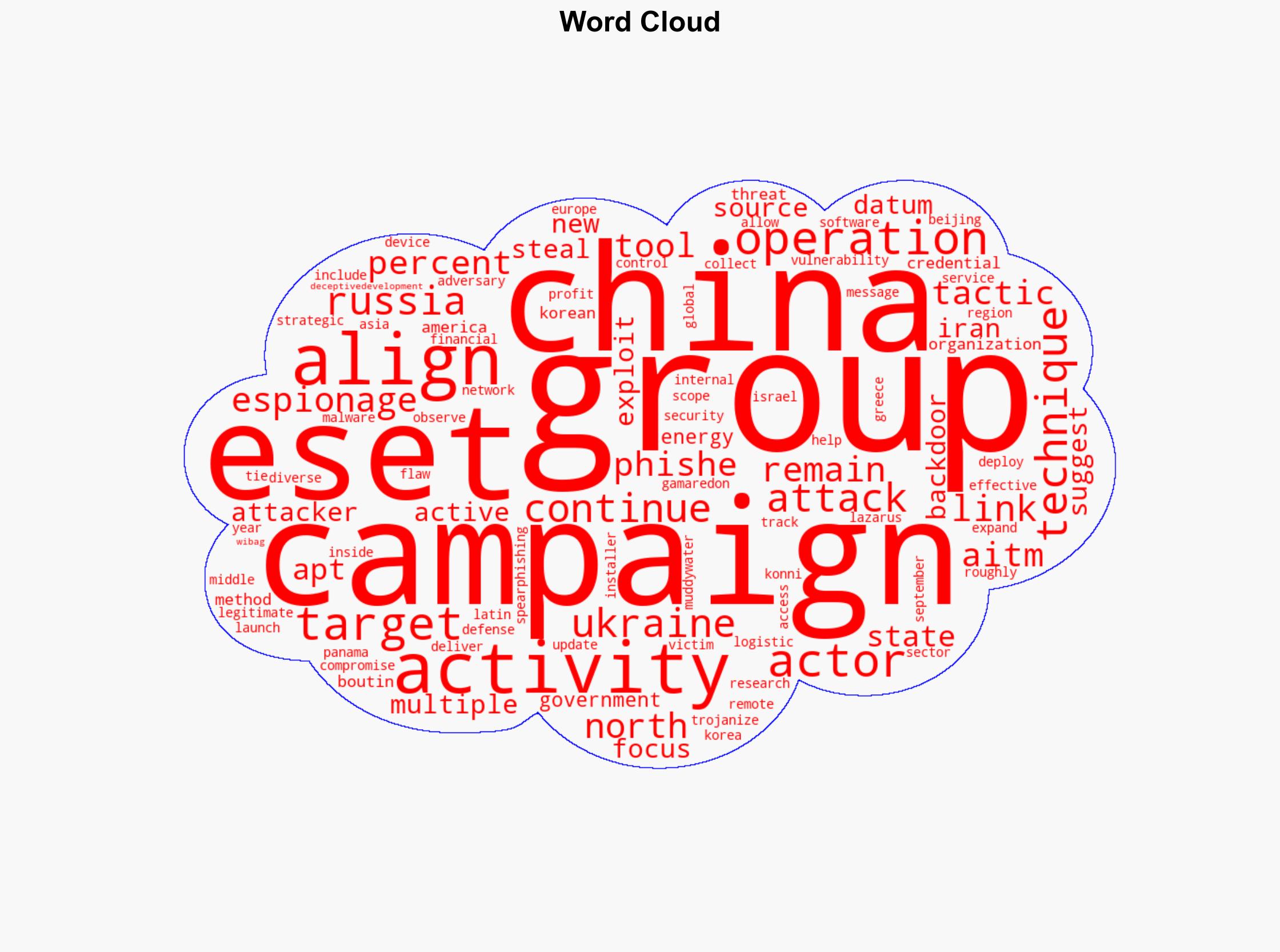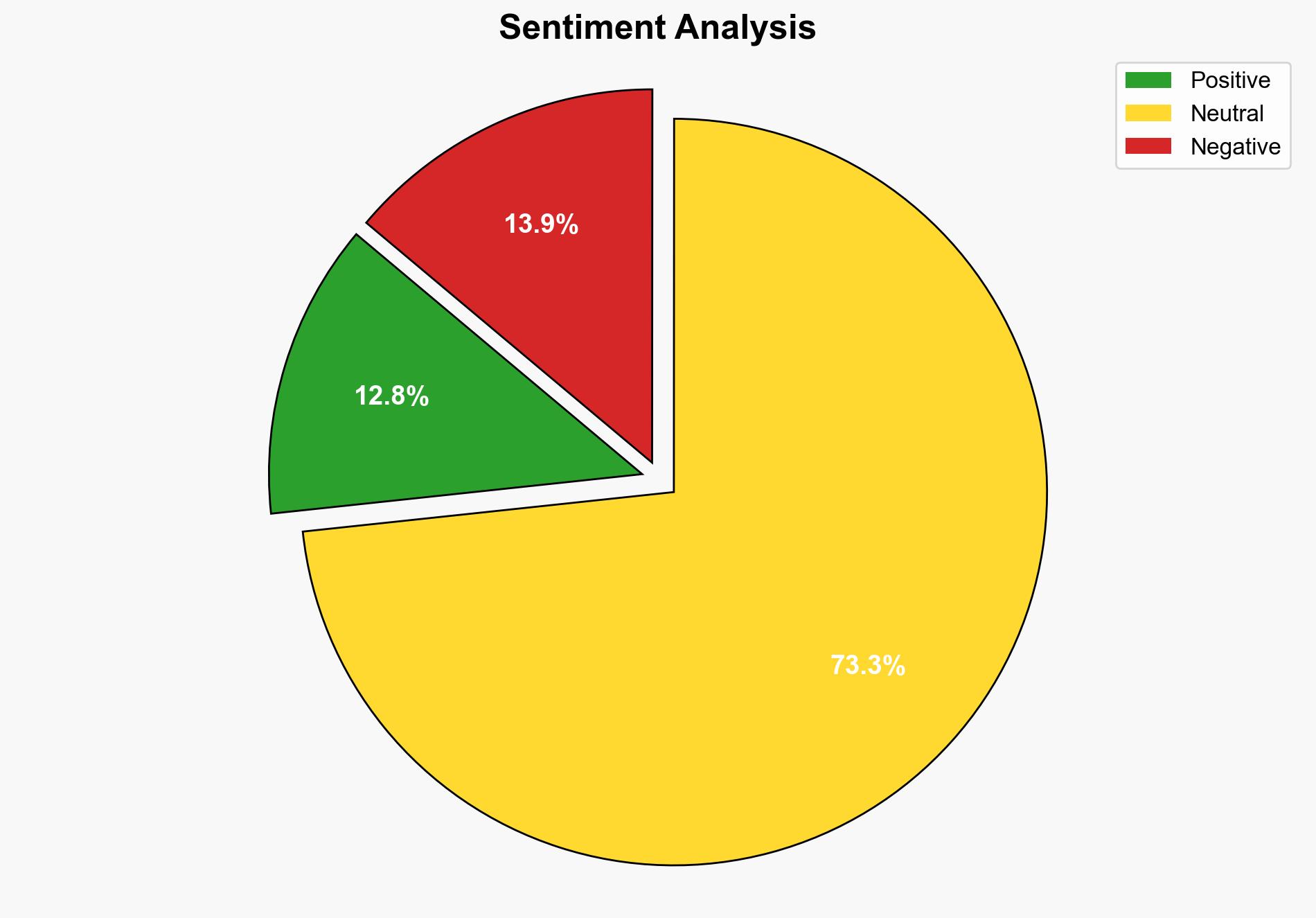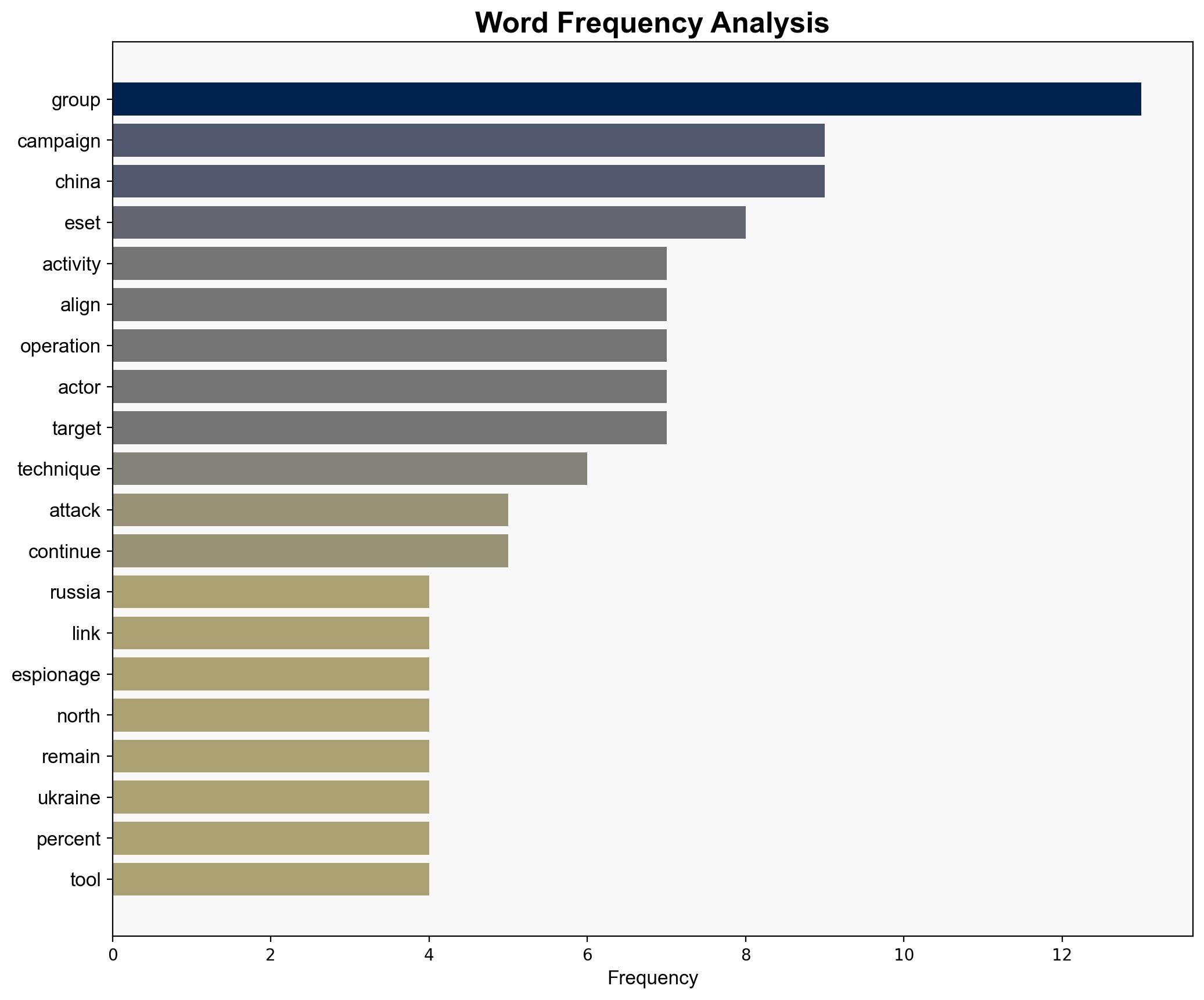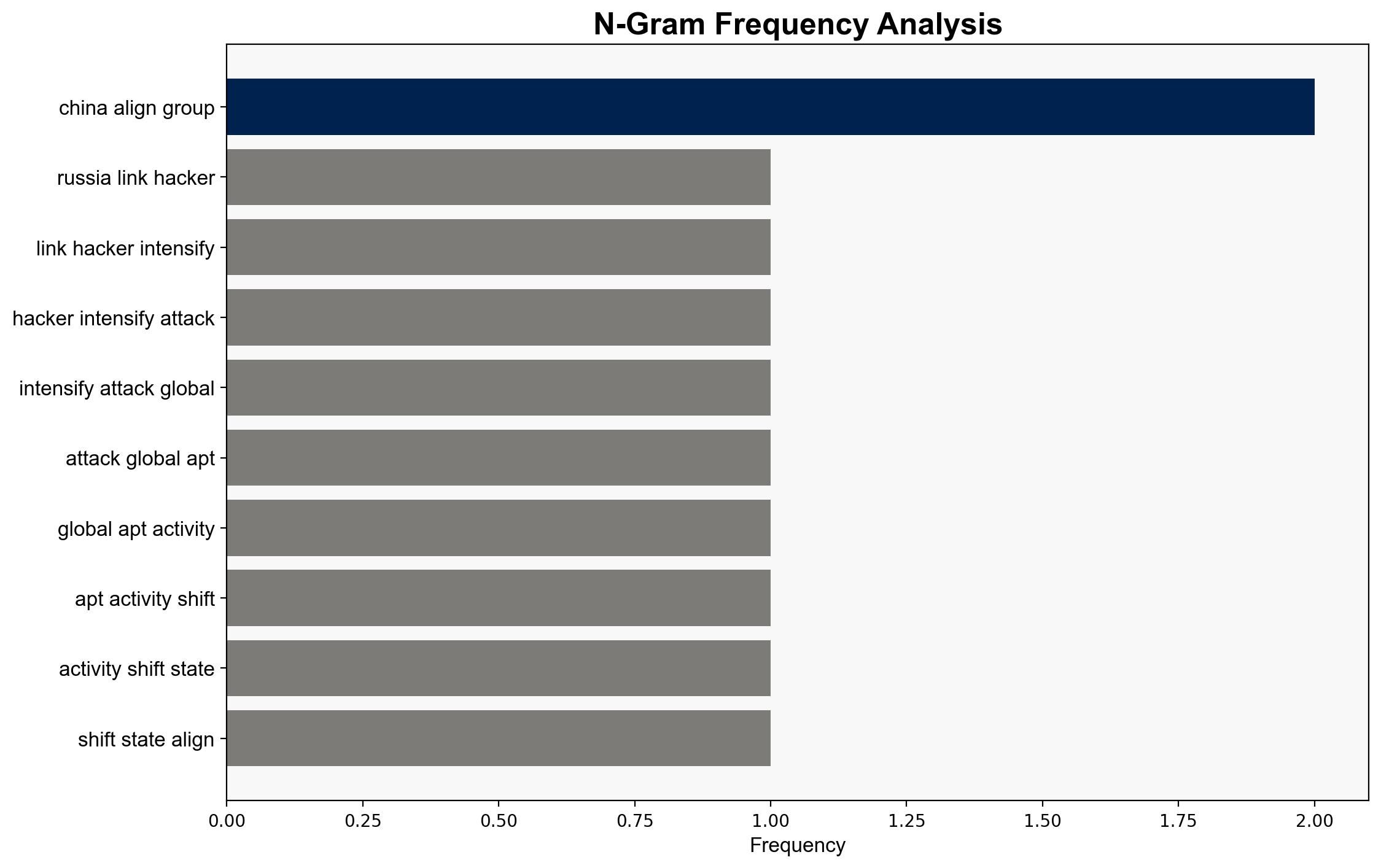Russia-linked hackers intensify attacks as global APT activity shifts – Help Net Security
Published on: 2025-11-06
Intelligence Report: Russia-linked hackers intensify attacks as global APT activity shifts – Help Net Security
1. BLUF (Bottom Line Up Front)
The most supported hypothesis is that Russia-linked hackers are intensifying their attacks to disrupt Ukraine and its allies, leveraging evolving techniques and selective cooperation with other cyber units. Confidence level: Moderate. Recommended action: Enhance cybersecurity measures in targeted regions and sectors, particularly in Europe and Ukraine, and increase international cooperation for threat intelligence sharing.
2. Competing Hypotheses
1. **Hypothesis A**: Russia-linked hackers are primarily focused on disrupting Ukraine and its allies through intensified cyber operations, exploiting vulnerabilities and collaborating selectively with other cyber units to maximize impact.
2. **Hypothesis B**: The increase in cyber activities by Russia-linked hackers is part of a broader strategic shift in global APT activity, with multiple state-aligned groups, including those from China and Iran, expanding their operations to achieve geopolitical objectives beyond Ukraine.
Using the Analysis of Competing Hypotheses (ACH) 2.0, Hypothesis A is better supported due to the specific targeting of Ukrainian and European sectors and the noted collaboration between Russian cyber units, which aligns with ongoing geopolitical tensions.
3. Key Assumptions and Red Flags
– **Assumptions**: It is assumed that the reported cyber activities are accurately attributed to Russia-linked groups and that their primary intent is geopolitical disruption.
– **Red Flags**: The potential for misattribution of cyber activities due to overlapping techniques used by different state actors. The evolving nature of cyber tactics may lead to underestimating the capabilities or intentions of these groups.
– **Blind Spots**: Limited visibility into the internal decision-making processes of these hacking groups and the full extent of their collaboration with other state actors.
4. Implications and Strategic Risks
The intensification of cyber operations by Russia-linked hackers poses significant risks to Ukraine’s wartime economy and its allies’ critical infrastructure. The potential for cascading effects includes economic destabilization and increased geopolitical tensions. The collaboration between Russian cyber units and the use of advanced techniques could lead to more sophisticated and harder-to-detect attacks, increasing the difficulty of defense and mitigation efforts.
5. Recommendations and Outlook
- Enhance cybersecurity defenses in critical sectors, particularly in Europe and Ukraine, focusing on patching known vulnerabilities and improving incident response capabilities.
- Strengthen international cooperation for intelligence sharing and joint cyber defense initiatives to counteract the evolving threat landscape.
- Scenario-based projections:
- Best-case: Successful international collaboration mitigates the impact of cyber attacks, leading to improved resilience and deterrence.
- Worst-case: Escalation of cyber operations results in significant economic and infrastructural damage, exacerbating geopolitical tensions.
- Most likely: Continued cyber operations with periodic disruptions, requiring ongoing vigilance and adaptation of defense strategies.
6. Key Individuals and Entities
– ESET (Cybersecurity firm providing the report)
– Jean-Ian Boutin (Director of Threat Research at ESET)
7. Thematic Tags
national security threats, cybersecurity, counter-terrorism, regional focus





